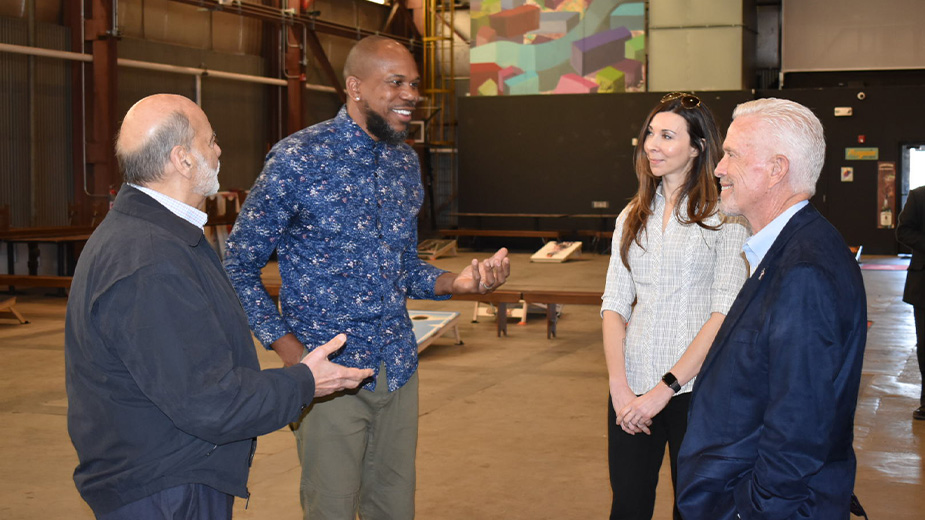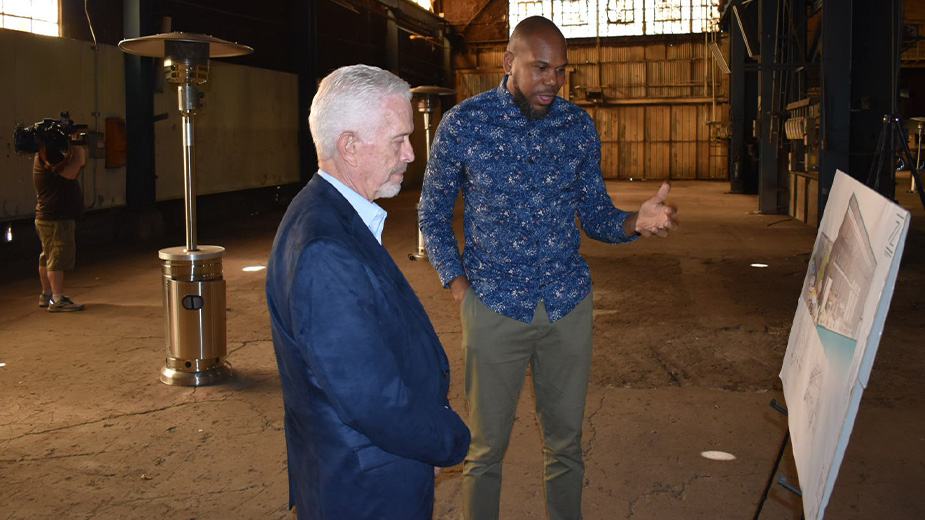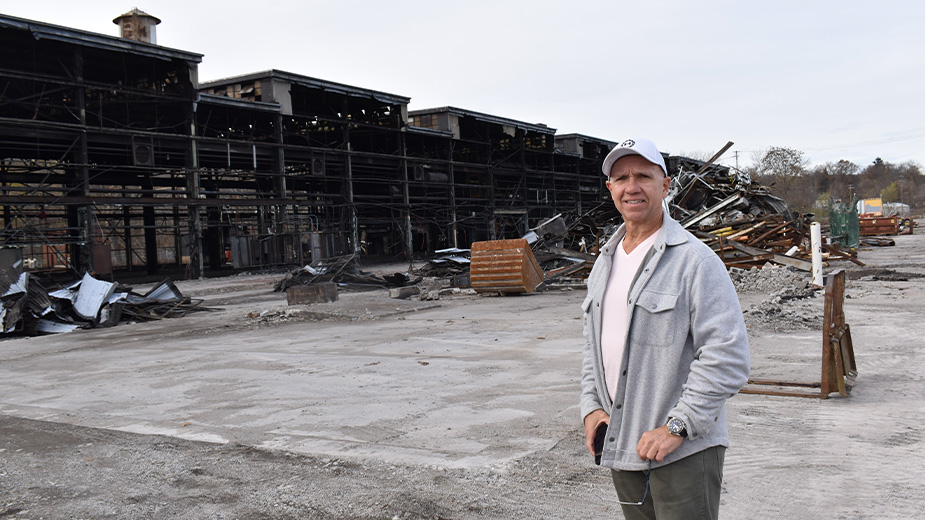Johnson Highlights Businesses on East End Visit
YOUNGSTOWN, Ohio – U.S. Rep. Bill Johnson said he sees public-private partnerships as key to unleashing the potential of downtown’s East End.
Johnson, R-6th, visited the two repurposed industrial buildings that now house the Youngstown Flea and Penguin City Brewing Co. late Wednesday morning.
“What a vision the folks have here,” the congressman said during the first stop, at the Youngtown Flea property. “I’ve lived in cities all over the United States, and I’ve seen the revitalization of neighborhoods and rundown areas and economically struggling areas. All it takes is a visionary spark to get people excited about what can be.”
Youngstown Flea founder Derrick McDowell purchased the former Northeast Fabricators building, 365 E. Boardman St., in late 2020 to provide a year-round venue for his “market for makers,” which he launched in 2016 at a downtown parking lot.
He showed Johnson samples of the products his vendors produce and outlined plans to eventually renovate the space. Those plans include establishing space where startups can operate in incubation areas on a daily basis under one-year leases and potentially opening up the section of the building that faces the banks of the Mahoning River.
“We’ve talked about the transformational transportation hub that we want to be. We want to allow folks to come through our property and gain access to that riverfront,” he said. The outdoor space could also serve as a venue for events like wine and jazz festivals and night markets.
The leased vendor spaces will allow startups to establish themselves and gain visibility, he said. Youngstown Clothing Co., Culture House Coffee Co. and Common Goods Studio “are all folks who got their beginning at the Flea and are examples of how we can take a business, give it its foundation and footing and send it out into our community to go on to enjoy its own successes,” he said.
There is no set time frame for making the upgrades as he explores grants and other funding sources, such as brownfield remediation grants and funding offered through the Appalachian Regional Commission, as well as potential private funders.
Johnson pointed to potential funding sources including federal historic tax credits and economic development grants, as well as private financing.
“It’s going to take a public-private partnership,” he said. “It can’t all be funded with public funders. There’s got to be some skin in the game from the private sector.”
Johnson can help by identifying financing and just from his relationships as a former businessman, but businesses ultimately want to be seen and want a “fighting chance to succeed,” McDowell said.
“Visibility matters in today’s world,” he remarked.

Johnson’s second stop was across the street at the former Republic warehouse that Penguin City bought in late 2020. Penguin City spent approximately $5 million to acquire and renovate the property, 460 E. Federal St., where it relocated its brewing operations and opened a taproom and event space last year.
The visit represented a reunion of sorts for Johnson and one of Penguin City’s partners, businessman Lou Lyras, who challenged the incumbent congressman for his seat. In recent months, the operation has “definitely started” to move into the black, he said.
“That’s comforting,” though its income stream can’t yet cover the “wish list” for the brewery, he continued.
“I have a pretty big equipment wish list we can’t fulfill,” Penguin City partner Richard Bernacki said.
Bernacki acknowledged the brewery was hit by supply chain price increases related to the COVID-19 pandemic.
“Shipping alone was triple for all of these tanks,” he said.
“We just kept moving forward. That was all we could do,” Aspasia Lyras-Bernacki, managing partner, said.
The owners put plans for a kitchen on hold to prioritize brewing, Lyras-Bernacki said. Earlier this year, Penguin City entered into a distribution agreement with Heidelberg Distributing Co. to distribute its products throughout Ohio.
“We just kind of have that on hold, but, yes, eventually,” she said. The brewery now has food trucks on site during operating hours.
“You need to figure out how to move the kitchen up on your priority list,” Johnson advised. “If you can offer food here, now you’re talking about a whole different demographic of potential customers.” He also directed the Penguin City partners to potential funding sources and recommended they work with his grants specialist on possibilities, including historic tax credits and brownfield and energy efficiency funds.
Even low-interest loans would be helpful, Lyras said.
“I’d like you to count us as partners in your journey,” Johnson said.
Like McDowell, Lyras-Bernacki also said she appreciated the visibility that visits like Johnson’s bring to “raise awareness for what we’re doing, especially on the East End.”
Though Penguin City and Youngstown Flea operate independently, they have a “larger goal” of benefiting the community, McDowell said.
“The vision that we have can be very transformational for this entire East End, as well as the city of Youngstown,” he said.
Pictured at top: Youngstown Flea founder Derrick McDowell and U.S. Rep. Bill Johnson look at renderings of plans for the Youngstown Flea building.
Copyright 2024 The Business Journal, Youngstown, Ohio.



